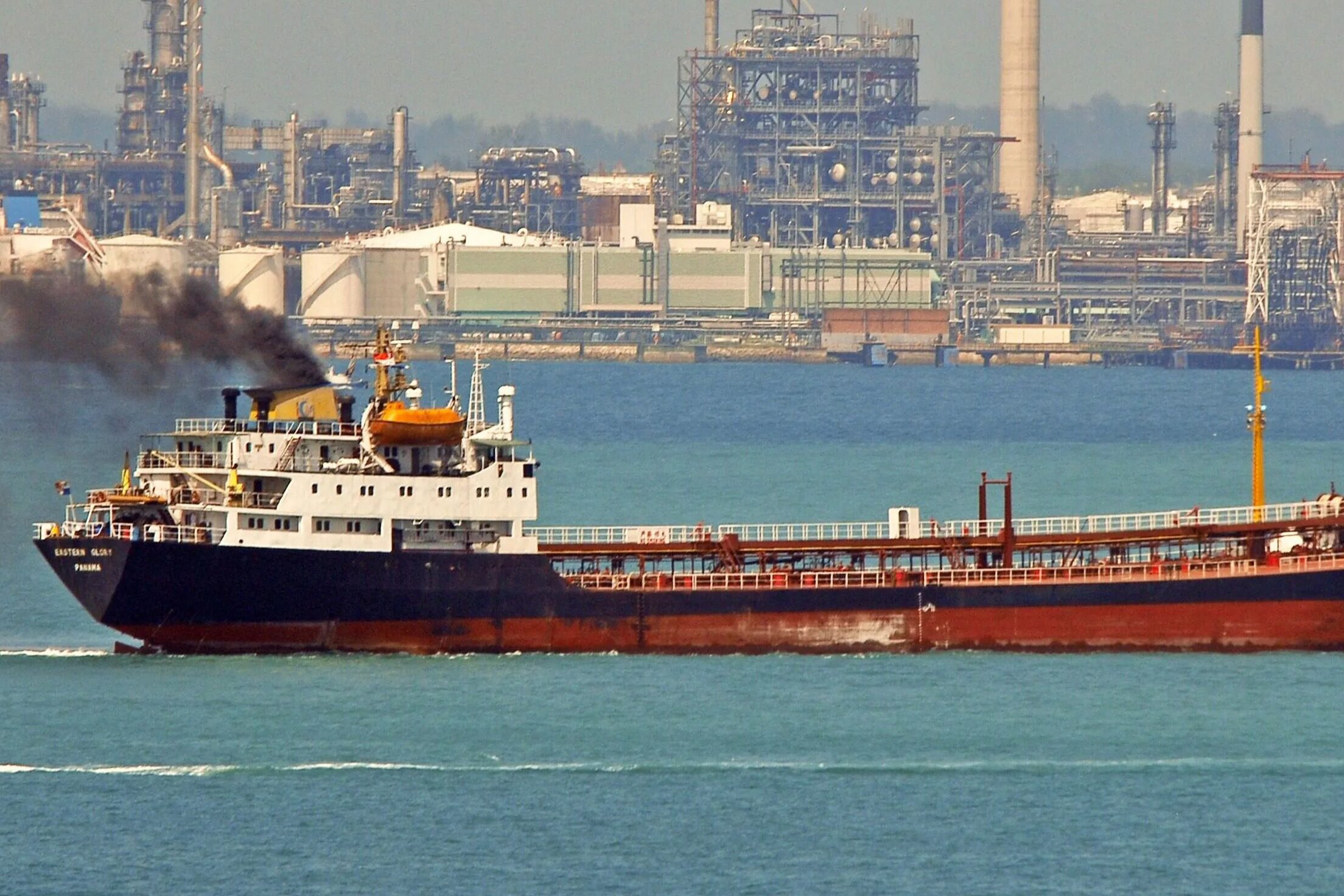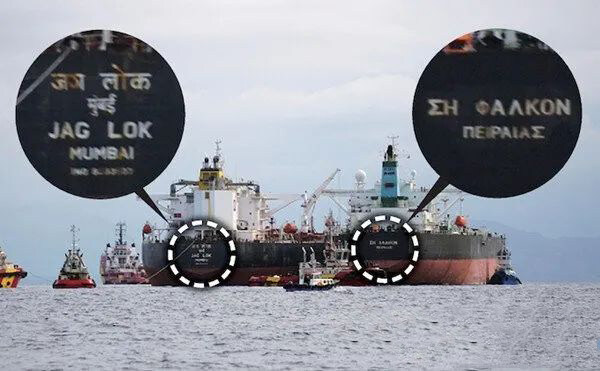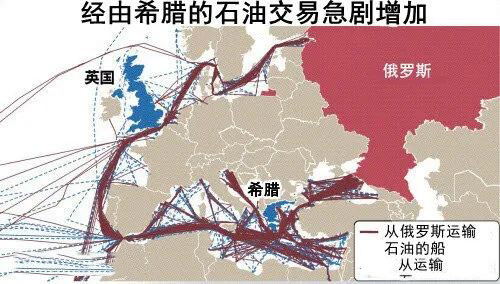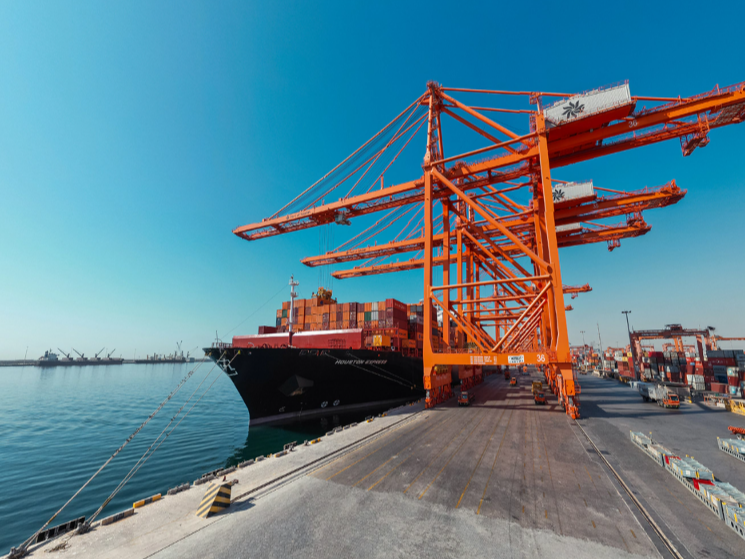- In the six months to Aug. 22, there were 175 cases involving sea-to-ship transfers of oil from Russian tankers
- EU to stop seaborne imports of Russian oil by February 2023

A few days ago, the reporter's investigation found that 41 ships off the coast of Greece received oil from oil tankers originating in Russia and entered Europe within six months, a significant increase compared with one ship the previous year. The European Union (EU) and the United Kingdom will not embargo Russian oil until the end of 2022, but companies risk criticism if the deal comes to light. Changing the circulation methods of ships and obscuring origins may remain a loophole in sanctions against Russia.
On August 24, the reporter photographed the moment when two oil tankers were transferring oil in the Laconia Gulf in southern Greece. A tanker, the Greek-registered "Sea Falcon", left the port of Ust-Luga, an oil loading station in northwestern Russia, on September 4. The other, the Indian-registered vessel "Jagrok", left Turkish ports on September 4. According to local residents, after the outbreak of the Russian-Ukrainian war on February 24, the number of oil tankers anchored in the Gulf increased rapidly.

The reporter analyzed the data of the British Refinitiv company on the movements of oil tankers that left Russian ports after February 24 and the movements of ships in contact with them to understand the actual situation of Russia's maritime oil transportation. The object area is the Mediterranean Sea off the coast of Greece. The number of pieces of oil transferred while changing ships at sea was investigated by matching Automatic Identification System (AIS) signals sent by the ships to changes in draught showing the weight of the cargo.
In the six months to Aug. 22, there were 175 cases involving sea-to-ship transfers of oil from Russian tankers. There are nine in the same period in 2021. During the same period, 23.86 million barrels of oil were shipped from Russia for diversion off the coast of Greece, more than five times higher than the 4.34 million barrels the year before, according to Refinitiv data.
The number of tankers confirmed at ports of entry after the transfer of oil at sea changing ships was 89 (previous year: 3). Europe, including Greece and Belgium, was the most common destination with 41 ships (1), with two also heading to the UK.
The EU will stop importing Russian oil by sea by February 2023. The UK has taken a tougher stance due to Russian sanctions and will impose a total embargo until December 2022. According to the International Energy Agency (IEA), Russia's oil exports to the EU fell 26% in July compared with January to 2.8 million barrels per day. While the deals are not currently illegal, companies are ostensibly moving to review their ties to Russia under government and market scrutiny.

Journalists tried to verify oil deals that were shipped to the UK in June. Analysis of the trajectories and satellite imagery confirmed that a Malta-registered tanker entered the UK port of Imingham on June 4 and unloaded its cargo after diverting oil. The cargo, 300,000 barrels of oil produced by Russian state-owned Rosnefti, was sold to British oil broker Plax Group, and the shipper was Trafigura, a large resource trading company.
When reporters visited Plax's UK headquarters and asked to inquire about the deal, the company declined to mention it, saying it "cannot comment on individual transactions". Trafigura said in an emailed response that "our company complies with customer and relevant government requirements." Rosnefti did not respond within a time limit set by reporters.
Changing ships at sea is not necessarily a bad thing in itself. In the oil trade, oil can be assembled by large ships with high transportation efficiency on long-distance routes, and there are also things that buyers change after departure and transfer oil to other ships. However, due to the diversion of goods, it is difficult to determine the original shipping location.
Countries require importers to notify origin, among other things in domestic law, "if the transaction is carried out by sea change, it is more difficult for the authorities to verify the actual origin" (Julian Matnia of US intelligence firm Energy Intelligence). The State Department noted that "ship swaps were used for the purpose of evading sanctions," warning against misconduct.
The Group of Seven (G7) nations will set a cap on the price of Russian oil from December. Russia has pushed for discounted sales of oil. Sanctions are designed to cut off Russian sources of funding, but their effect is limited if the distribution of Russian goods with opaque production locations prevails. Measures are needed to strengthen international cooperation and expose opaque trade. Editor / Xu Shengpeng
Comment
 Praise
Praise
 Collect
Collect
 Comment
Comment
 Search
Search














Write something~